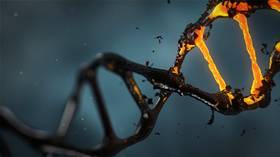Scientists develop new tool in fight against CANCERS and VIRUSES that sequences circular DNA

Biologists in Canada have developed a new tool to sequence circular DNA and provide more accurate intelligence on how to fight some of the major scourges facing humanity, such as cancers and viruses.
Researchers at the University of Alberta have developed a tool called Circular DNA enrichment sequencing or ‘CIDER-Seq’ for short.
The high-tech package is powered by the DNA sequencing technology PacBio and was made available online, free-to-use, along with step-by-step guides for how to sequence the DNA, to help expedite work in numerous fields of research from cutting edge cancer studies to agricultural science.
“With our invention of CIDER-Seq, we can begin to understand the function of these mysterious circular DNAs in human and plant cells,” said Devang Mehta, lead author of the study.
Also on rt.com Major MILESTONE as scientists use CRISPR gene-editing in patient’s body for first timeWhile circular DNA is common in bacteria and viruses, scientists have recently discovered it in the nuclei of human and plant cells, called extrachromosomal circular DNA or eccDNA for short.
Research has only recently begun in earnest into this little-understood eccDNA, which is also commonly found in cancer cells. Work has been quite slow thus far, owing to the lack of effective intelligence in the form of a reference library of sequenced circular DNA. Now, however, studies can gather pace and may soon provide insights into how cancer cells multiply so rapidly.
In the meantime, the researchers have highlighted the tool’s efficacy in a completely different field – the fight against viruses that infect our crops. The tool has already been deployed by agricultural scientists studying resistance among genetically engineered crops to circular DNA viruses in Kenya.
It may also soon help in the discovery and sequencing of new viruses, a development which humanity needs now more than ever before.
Also on rt.com A new strain has come: Meet Spike D614G, the new & improved coronavirusThink your friends would be interested? Share this story!












